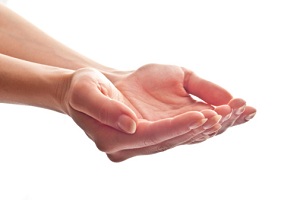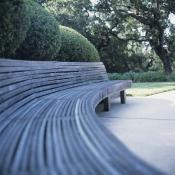 My previous post discussed connecting with the inner knowledge that we gain through the practice of mindfulness. Besides knowledge, another quality that can be developed through mindfulness practice is not-knowing. I’d like to point out some benefits of acquiring this quality and approach to life.
My previous post discussed connecting with the inner knowledge that we gain through the practice of mindfulness. Besides knowledge, another quality that can be developed through mindfulness practice is not-knowing. I’d like to point out some benefits of acquiring this quality and approach to life.
There are three kinds of not-knowing:
1. Letting go of what we know.
We tend to categorize our experiences through names, titles, and classifications, which we use to gain control over a situation. This tendency helps to capture a whole range of phenomena in a word or two. If we revisit the Garden of Eden we discussed in the previous post, Adam, in the name of humanity, gave names to all animals and birds. In this way he not only gained some superiority over them, but also a better way to relate to and communicate about them. Instead to describing a yellow-brown animal with a fierce roar, he can just say “lion,” and the image and qualities of a lion will appear. This categorization is useful for communication and understanding, but the price is generalization and reactivity.
When a person experiences anxiety, for instance, just calling the symptoms “anxiety” can bring a range of reactions such as fear, frustration, sadness, self-defeating thoughts, and avoidance. Through mindfulness and a not-knowing approach, the range of phenomena is explored with curiosity and openness: How does this feeling present itself in the body? What are the size, depth, and boundaries of the sensation? Are they changing? If so, in what way?
In therapy, this genuine exploration serves as a way to bypass identification of clients with their diagnosis—both formal and informal—and come back to experiencing thoughts, emotions, and sensations as they are, without the kind of learned reactivity that, in many instances, spirals the situation down. All emotions can be approached in a fresh mind, allowing discoveries and loosening the grip of concepts.
2. Letting go of what we don’t know.
This type of not-knowing relates to the ability to not plan or predict ahead of time what is going to happen. In many cases, of course, one needs to plan and be ready. When planning becomes rigid and restrictive, however, it is time to practice not-knowing by trusting the process and allowing it to unfold in a creative, fresh, and innovative way. The tendency to want to know what will happen is tempting, but when we are mindful of every moment and allow not-knowing be part of how we live, we can try new things, like starting a business or a new career, embarking on new adventures, and developing meaningful relationships.
In any case, stability is only an illusion. The reality is that we don’t know what will happen next. Not-knowing connects us to things as they are and helps us to be released from the illusion of stability and security. In a way, being aware of the fragility of stability encourages innovation, taking risks, and exploring. This demands courage and strength, both of which are developed, in an ongoing cyclical way, as we allow not-knowing to be present in our life.
I teach an Interpersonal Mindfulness program, founded by Gregory Kramer, PhD, on how to bring mindfulness to speaking, listening, and relationships. One of the program’s guidelines is trust emergence, which encourages participants to dive into the unknown, trust the dialogue to be developed without having an agenda, and allow ourselves to not-know how the conversation will develop and how it will end. Trust emergence encourages new ideas, surprising discoveries, and opens the door to closeness and trust among the people involved in the process.
3. Living with open questions.
Every day, there are many decisions to make and questions to answer, from the most mundane (“What I shall wear today?”) to decisions at work and spiritual inquires about the purpose of life. Usually we are compelled to give answers—and they better be the correct ones. Without taking away the importance of having solutions and knowing the right answers, in many instances there is a value in just being with a question.
This kind of not-knowing calls for patience, humbleness, openness, centering, and inspiration. “Sitting with an open question” is one of my favorite meditations and I offer it to clients when appropriate. Living with an open question gives the freedom to explore, contemplate, and open an inner space that releases from tightness and holding. In a mysterious way, the chance to eventually come to an answer that makes sense and is satisfying increases tremendously.
This last sentence brings us back to the idea of mindfulness as knowing. You can see that those two contradicting statements—mindfulness as knowing, and mindfulness as not-knowing—are basically one. They complement each other and together represent the wholeness and richness of living mindfully.

The preceding article was solely written by the author named above. Any views and opinions expressed are not necessarily shared by GoodTherapy.org. Questions or concerns about the preceding article can be directed to the author or posted as a comment below.

 Mindfulness and the Art of Letting Go
Mindfulness and the Art of Letting Go Mindfulness Practice: Learning to Live in the Moment
Mindfulness Practice: Learning to Live in the Moment The Anchor of Your Inner Voice
The Anchor of Your Inner Voice

